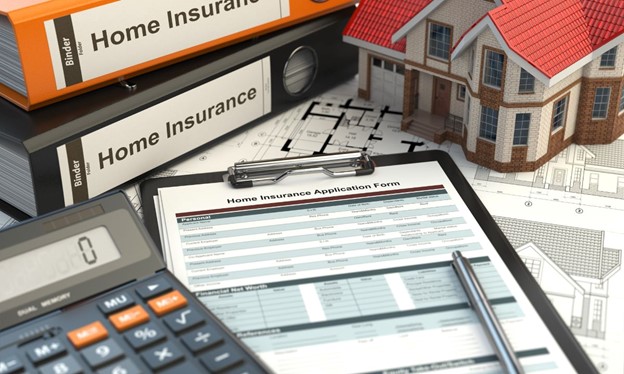 When it comes to finding the perfect place to call home, the variety of property types available can be both exciting and overwhelming. The real estate market offers a plethora of options, each with its own unique features, advantages, and considerations. From the cozy solitude of a single-family home to the dynamic potential of multi-family units and beyond, understanding these property types is key to making an informed and satisfying choice.
When it comes to finding the perfect place to call home, the variety of property types available can be both exciting and overwhelming. The real estate market offers a plethora of options, each with its own unique features, advantages, and considerations. From the cozy solitude of a single-family home to the dynamic potential of multi-family units and beyond, understanding these property types is key to making an informed and satisfying choice.
Single-Family Homes: Embrace Privacy and Independence
Single-family homes stand out for their independence and privacy. They are typically detached structures, providing you with sole ownership of both the house and the land it sits on. For those seeking a sense of personal space and autonomy, these homes often offer a great fit. They’re ideal for families, individuals valuing privacy, and those who prefer control over their living space.
Considerations:
Maintenance Responsibility: You’ll be solely responsible for all maintenance and upkeep.
Space and Expansion: Potential for outdoor space and room for expansion or personalization.
Multi-Family Units: Community Living and Investment Potential
Multi-family units, such as duplexes, triplexes, and apartment complexes, are designed to accommodate multiple households within the same building. They offer a sense of community and shared amenities, making them great for social individuals or those seeking a built-in network. From an investment perspective, they can generate rental income by leasing out the additional units.
Considerations:
Rental Income Potential: Owning and renting out additional units can provide a consistent income stream.
Shared Responsibilities: Shared maintenance and potential community rules or regulations.
Condos and Townhouses: Balancing Ownership and Community
Condos and townhouses offer a blend of independence and shared amenities. You own your individual unit while sharing common spaces, such as gyms, pools, and landscaping, managed by a homeowners’ association. These properties are often more affordable than single-family homes and can suit individuals looking for a mix of ownership and communal living.
Considerations:
Association Fees: Monthly fees for shared amenities and maintenance.
Community Living: Living in close proximity to neighbors and abiding by HOA rules.
Making Your Decision
When exploring different property types, consider what matters most to you. Assess your lifestyle, future plans, financial capabilities, and personal preferences. What kind of living environment aligns best with your goals and values? Do you prioritize independence or enjoy communal living? Are you looking for an investment opportunity or a space to settle down in for the long term?
Finding the ideal property involves a balance between what you desire and what fits your practical needs. Exploring these various property types is an exciting journey toward finding your perfect place to call home.
In the diverse landscape of real estate, the variety of property types ensures that there’s something for everyone. Whether it’s the solitude of a single-family home, the vibrancy of a multi-family unit, or the unique charm of a specialty property, the right home is out there, waiting to welcome you.
Take the time to evaluate your needs, preferences, and long-term goals. Whether it’s the independence of a single-family home, the community spirit of multi-family units, or the tailored lifestyle of specialty properties, there’s a perfect match waiting for you in the diverse world of real estate.
 Kitchen remodeling projects can be exciting, but they also require careful planning and execution to avoid common mistakes that can lead to disappointment or costly errors.
Kitchen remodeling projects can be exciting, but they also require careful planning and execution to avoid common mistakes that can lead to disappointment or costly errors.  Buying a home is one of life’s significant milestones, but it often comes with a significant price tag. Fortunately, the sticker price on a house isn’t always set in stone. When buying a home, negotiating certain costs can save you a significant amount of money. Here are some costs that every homebuyer should negotiate:
Buying a home is one of life’s significant milestones, but it often comes with a significant price tag. Fortunately, the sticker price on a house isn’t always set in stone. When buying a home, negotiating certain costs can save you a significant amount of money. Here are some costs that every homebuyer should negotiate: When a borrower applies for a mortgage loan, the lender typically requires proof of insurance coverage before they approve the loan. An insurance binder is a document issued by the insurance company that provides temporary proof of insurance coverage until the official insurance policy is issued.
When a borrower applies for a mortgage loan, the lender typically requires proof of insurance coverage before they approve the loan. An insurance binder is a document issued by the insurance company that provides temporary proof of insurance coverage until the official insurance policy is issued. Purchasing a home is one of the most significant financial investments one can make in one’s lifetime. However, beneath the glossy exterior of a prospective dream home lies a world of hidden issues that can have a profound impact on your investment.
Purchasing a home is one of the most significant financial investments one can make in one’s lifetime. However, beneath the glossy exterior of a prospective dream home lies a world of hidden issues that can have a profound impact on your investment. As far as purchasing a home goes, “bigger is better” has often been the mantra. However, the trend of downsizing and tiny homes has gained significant traction in recent years, prompting many to rethink their approach to living spaces. This shift towards smaller, more efficient living has far-reaching implications for our lifestyles, our environmental footprint, and the way we view material possessions.
As far as purchasing a home goes, “bigger is better” has often been the mantra. However, the trend of downsizing and tiny homes has gained significant traction in recent years, prompting many to rethink their approach to living spaces. This shift towards smaller, more efficient living has far-reaching implications for our lifestyles, our environmental footprint, and the way we view material possessions.